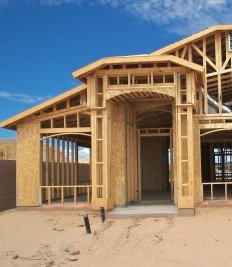 Ask any friend or family member that owns a home and they will share that it takes a bit of management to keep all the expenses under control. Let’s explore the concept of PITI and why it is vital to have a clear picture of how much your home is costing you each month.
Ask any friend or family member that owns a home and they will share that it takes a bit of management to keep all the expenses under control. Let’s explore the concept of PITI and why it is vital to have a clear picture of how much your home is costing you each month.
Just What Is PITI, Anyway?
PITI is an acronym that stands for “principal, interest, taxes and insurance,” which are the four main components that make up your housing costs.
Principal – this is the amount that you are paying against the total amount that you borrowed when you purchased the home. For example, if you used a mortgage to cover $200,000 of the home’s purchase price, the remaining balance of that $200,000 is the principal. A part of your monthly mortgage payment goes to paying down the principal.
Interest – this is the extra cost that the lender charges for the service of lending you the principal amount. For most mortgages, you will see this expressed as an “interest rate” which is a small percent charged on the loan. A portion of your monthly mortgage payment goes to paying down the interest owed.
Taxes – tax costs are not included in your monthly mortgage payment, but will be added by your lender as part of your yearly expenses when calculating your debt-to-income ratio (see below). Property taxes and other assessments will need to be paid each year.
Insurance – this is the cost of insuring your mortgage and your home. Like taxes, your mortgage lender will typically include some insurance costs in your DTI ratio calculation.
How Lenders Use PITI
Many mortgage lenders use some form of PITI calculation when determining your debt-to-income ratio. This ratio helps the lender understand your ability to manage your monthly mortgage payments without being at risk of missing one. The lower the ratio, the more likely you can afford all your monthly expenses.
Don’t Forget Your Other Monthly Expenses
Finally, don’t forget that along with PITI you will have a variety of other monthly expenses that need to be budgeted for. Leave some space for utilities, repairs and other renovations that need to be made throughout the year.
Once you have the full picture of what is coming in and going out each month, managing your expenses is easy. When you are ready to discuss or apply for a mortgage, get in touch with us. Our friendly team of mortgage professionals is happy to help.
 If you are looking for a way to diversify your investment portfolio, there are different options available. One option is to invest in real estate. With so many different choices, how can you select the right one for your needs? There are a few key points to keep in mind.
If you are looking for a way to diversify your investment portfolio, there are different options available. One option is to invest in real estate. With so many different choices, how can you select the right one for your needs? There are a few key points to keep in mind. There are a lot of pests that may try to make their way into your home, and they can cause significant health and safety issues in addition to detracting from your property values. It can be very difficult to remove infestations once they have infiltrated your home, so it is always better to prevent them from happening. What are a few tips you should keep in mind?
There are a lot of pests that may try to make their way into your home, and they can cause significant health and safety issues in addition to detracting from your property values. It can be very difficult to remove infestations once they have infiltrated your home, so it is always better to prevent them from happening. What are a few tips you should keep in mind?  If you are interested in purchasing a home, how much money should you put down? This is a difficult question that all potential homeowners need to answer, as it will dictate the size and location of the house you can afford. There are a number of factors to consider, so what do you need to know?
If you are interested in purchasing a home, how much money should you put down? This is a difficult question that all potential homeowners need to answer, as it will dictate the size and location of the house you can afford. There are a number of factors to consider, so what do you need to know?
 Just because you live in a small space doesn’t mean your home needs to feel cramped. There are several renovations that are popular among interior designers to make a space feel larger. Incorporate them into your own home to give it a more open, spacious feel.
Just because you live in a small space doesn’t mean your home needs to feel cramped. There are several renovations that are popular among interior designers to make a space feel larger. Incorporate them into your own home to give it a more open, spacious feel. There are many complicated terms thrown around regarding your mortgage, and one of them is an escrow account. You will probably hear that your lender will collect some additional money every month for escrow payments. If you take a look at your mortgage statement, you will see your interest, your principal, and your escrow. What does this mean, and why do you have to pay additional money that isn’t going toward the balance of your loan?
There are many complicated terms thrown around regarding your mortgage, and one of them is an escrow account. You will probably hear that your lender will collect some additional money every month for escrow payments. If you take a look at your mortgage statement, you will see your interest, your principal, and your escrow. What does this mean, and why do you have to pay additional money that isn’t going toward the balance of your loan? Last week’s economic reporting included readings on U.S housing markets, housing starts, and building permits issued. Data on sales of previously-owned homes were released along with weekly reports on mortgage rates and jobless claims.
Last week’s economic reporting included readings on U.S housing markets, housing starts, and building permits issued. Data on sales of previously-owned homes were released along with weekly reports on mortgage rates and jobless claims. Are you a retired individual looking for ways to increase your financial security? If so, you may have heard of a home equity conversion mortgage, more commonly known as a reverse mortgage. Used correctly, this is one of the most effective financial products for retirees who own their home.
Are you a retired individual looking for ways to increase your financial security? If so, you may have heard of a home equity conversion mortgage, more commonly known as a reverse mortgage. Used correctly, this is one of the most effective financial products for retirees who own their home. The National Association of Home Builders’ Housing Market Index for November showed builders’ growing concerns over U.S. housing market conditions. November’s index reading dropped five points to 33 as compared to October’s reading of 38 and the November 2021 reading of 83. November’s home builder index reading was the lowest reading since June 2012 except during the pandemic. Readings over 50 indicate that most home builders were positive about housing market conditions.
The National Association of Home Builders’ Housing Market Index for November showed builders’ growing concerns over U.S. housing market conditions. November’s index reading dropped five points to 33 as compared to October’s reading of 38 and the November 2021 reading of 83. November’s home builder index reading was the lowest reading since June 2012 except during the pandemic. Readings over 50 indicate that most home builders were positive about housing market conditions.